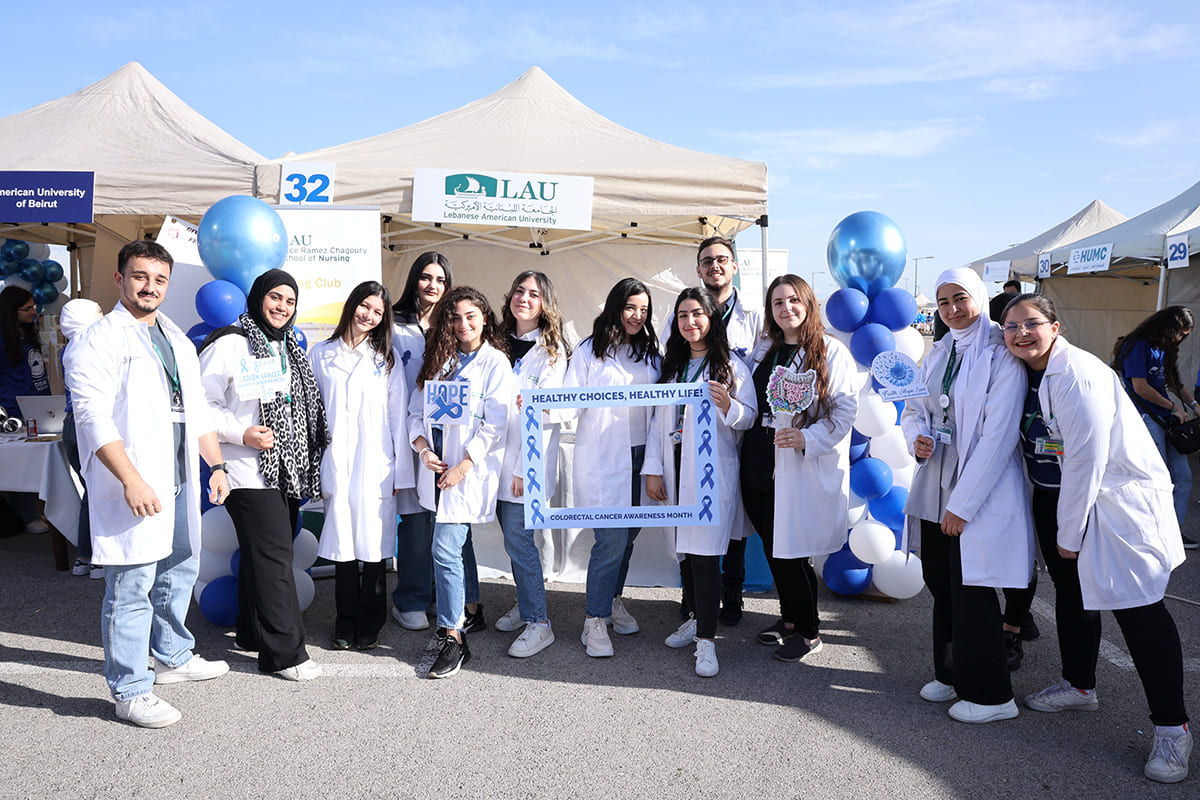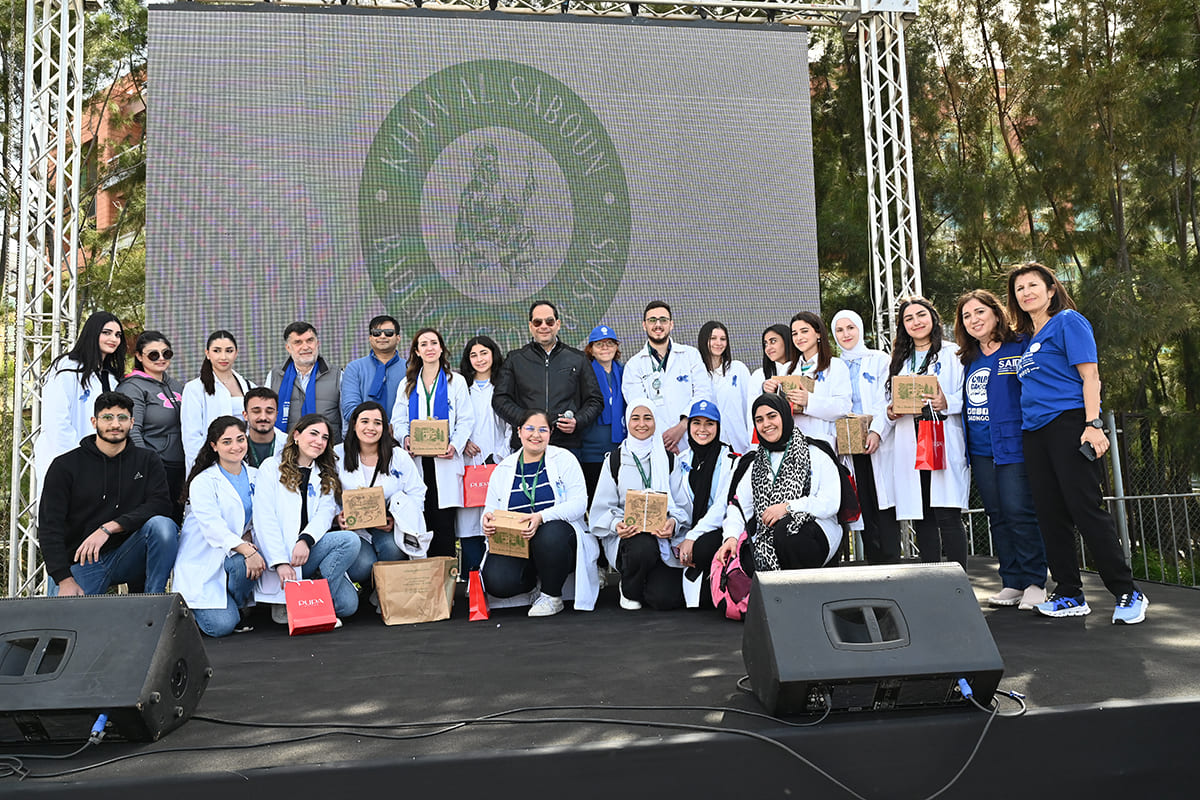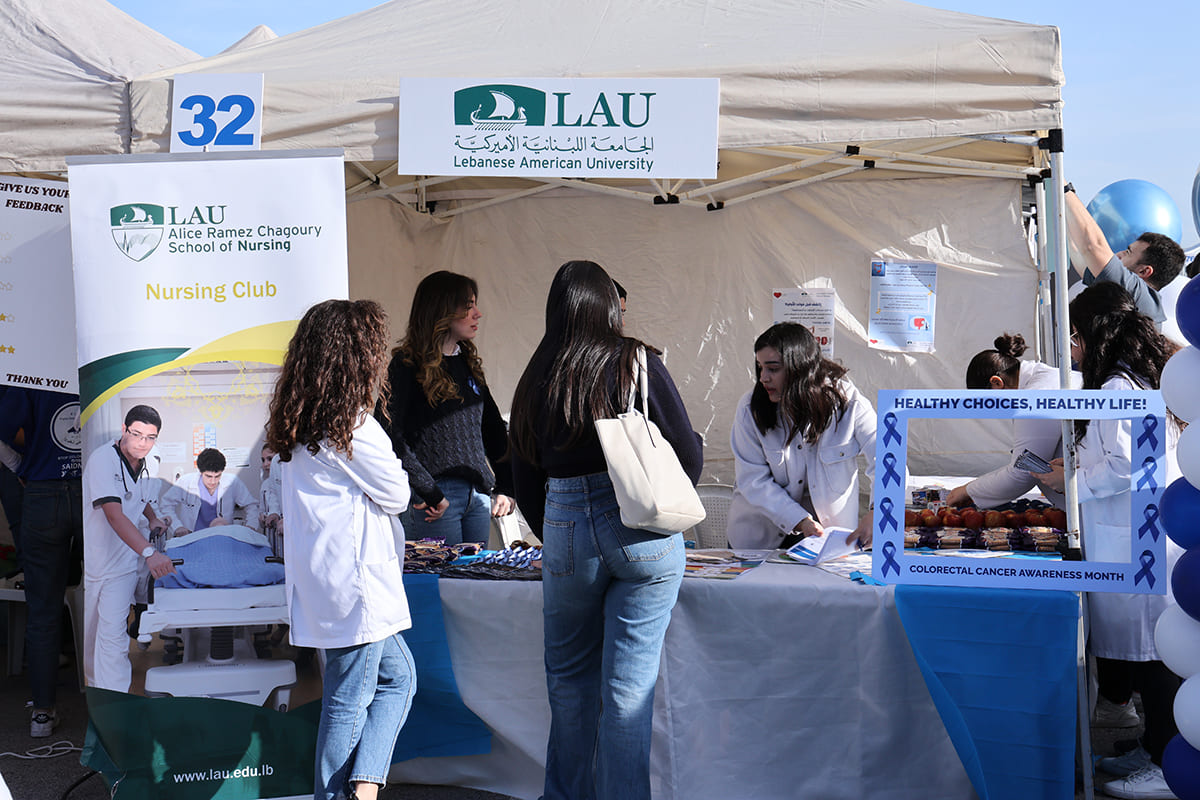Health Science Students Win at the Annual Colorectal Awareness Walkathon
A dedicated team of nutrition, pharmacy and nursing students claimed second place in an inter-university competition aimed at raising community awareness about colorectal cancer.
It is never too soon for students to place their knowledge of healthcare at the service of the community and to collaborate in communicating that prevention is better than cure.
Eager to take up this opportunity whenever it presents itself, LAU nursing, nutrition and pharmacy students joined forces to advocate for colorectal health at the annual Colorectal Awareness Walkathon organized by SAID NGO at the Biel waterfront on March 10. The organization was founded by LAU’s own Hana Nimer (BA ’13) who had lost her husband, Said, to colorectal cancer.
Dr. Bahia Abdallah, assistant professor and nursing program director at LAU’s Alice Ramez Chagoury School of Nursing, who is also a board member of SAID NGO, said that participating in this event aims to “provide university students with a unique platform to showcase their skills, knowledge, and enthusiasm in empowering people to take proactive steps to reduce the prevalence of colorectal cancer in their communities.”
“We were able to raise awareness about the disease,” said Yasin Jazieh, senior nursing student and president of the Nursing Club “covering its nature, stages, risk factors, the significance of maintaining a healthy diet and lifestyle, and the various available treatment options.” Jazieh is one of the four USAID Higher Education Scholarship Program (HES) scholars, alongside Ahmad Mneimneh, and Ghina Al Hassan and Wajd Awad—both of whom are HES Refugee/Displaced Scholarship Support program scholars—serving as board members of the club.
The students competed against fellow health science students from 10 other universities. They set up interactive booths that were open to walkathon participants and the public, where nutrition and lifestyle tips were communicated as preventive measures to reduce the risk of colorectal cancer.
An independent jury evaluated the booths based on the quality, originality, creativity, and delivery of their educational content to the audience. The LAU students secured second place for their knowledge, public engagement and communication skills.
Colorectal cancer ranks as the third and second most frequent cause of cancer incidence and mortality worldwide, respectively; however, with early screening and lifestyle changes, the survival rates increase dramatically.
Because the disease typically presents no symptoms, diagnosing it at an early stage is nearly impossible without regular check-ups. Hence, the critical role healthcare providers play in educating communities about the disease and the importance of early screening, especially for individuals above 45 years of age.
Through interactive activities, LAU’s senior nutrition students guided participants in understanding food labels for informed shopping, advised them on portion control and stressed the benefits of physical activity. They tailored their exercise recommendations based on the individual’s fitness level and lifestyle to support healthier habits.
Similarly, pharmacy and nursing students touched on the various treatment options available post-diagnosis. They also explained the role pharmacists and nurses play in promptly identifying symptoms of colon cancer, given that they are often the initial point of contact for patients.
The opportunity to collaborate in aid of their community’s wellbeing was equally rewarding for the students.
“This event not only allowed me to contribute to community health efforts but also provided me with valuable hands-on experience in health promotion and teamwork between health providers,” said Adriana Sadek, third-year pharmacy student.
Senior nutrition student and President of the Nutrition and Food Science Club Fatima Rasheed reflected on the experience, noting that it enabled her to apply her academic knowledge, enhance her understanding of the impact of nutrition on health and refine her skills in public health communication.
“By highlighting the critical role that diet plays in preventing disease, this event strengthened my enthusiasm for health advocacy and personal and professional growth,” she said.


